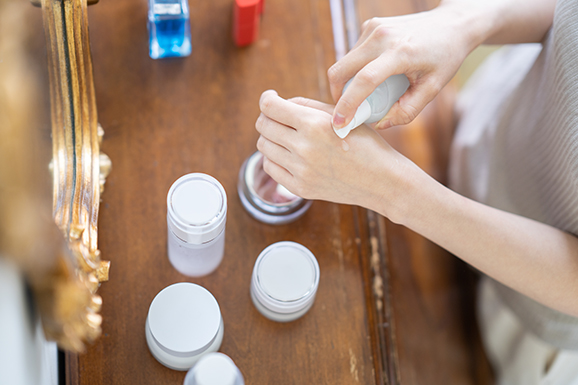Personalized cosmetics: Customized products that meet the needs of consumers
Today, consumers want customized products that fit their individuality and needs, beyond simply purchasing products. This is especially evident in the cosmetics industry, and the demand for personalized products is skyrocketing. Consumers spend a lot of time and effort to find cosmetics that fit them, and this trend is accelerating further with the development of AI and big data technologies.
1. Role of AI and Big Data
AI (Artificial Intelligence) and big data are becoming key elements in the development of personalized cosmetics. Brands can collect and analyze information about consumers’ skin types, preferences, and lifestyles to suggest products optimized for each individual. This data analysis contributes to meeting consumers’ needs and increasing brand loyalty by providing customized solutions to consumers.
For example, if a consumer enters their skin condition through a simple survey online, an AI algorithm recommends suitable products based on this information. In this process, it is possible to find the optimal combination by considering the moisture content, oil content, and sensitivity of the skin.
2. Examples of customized cosmetics
Many brands are applying various approaches to provide personalized cosmetics. For example, some brands operate a service where consumers input their skin type and problems, and then manufacture and deliver customized skincare products based on that information.
In addition, other brands provide consumers with the opportunity to create products that fit their individual needs by allowing them to select the ingredients they want. This method provides consumers with the pleasure of owning their own unique products and further strengthens trust in the brand.
Today, consumers want customized products that fit their individuality and needs, beyond simply purchasing products. This is especially evident in the cosmetics industry, and the demand for personalized products is skyrocketing. Consumers spend a lot of time and effort to find cosmetics that fit them, and this trend is accelerating further with the development of AI and big data technologies.
1. Role of AI and Big Data
AI (Artificial Intelligence) and big data are becoming key elements in the development of personalized cosmetics. Brands can collect and analyze information about consumers’ skin types, preferences, and lifestyles to suggest products optimized for each individual. This data analysis contributes to meeting consumers’ needs and increasing brand loyalty by providing customized solutions to consumers.
For example, if a consumer enters their skin condition through a simple survey online, an AI algorithm recommends suitable products based on this information. In this process, it is possible to find the optimal combination by considering the moisture content, oil content, and sensitivity of the skin.
2. Examples of customized cosmetics
Many brands are applying various approaches to provide personalized cosmetics. For example, some brands operate a service where consumers input their skin type and problems, and then manufacture and deliver customized skincare products based on that information.
In addition, other brands provide consumers with the opportunity to create products that fit their individual needs by allowing them to select the ingredients they want. This method provides consumers with the pleasure of owning their own unique products and further strengthens trust in the brand.

3. Improved consumer experience
Personalized products
dramatically improve consumer experience. Consumers can directly experience the effects of solving their skin problems by using products that are just right for them. This not only gives consumers greater satisfaction, but is also more likely to lead to positive evaluations of the product and repeat purchases.
In addition, customized products create a closer relationship between consumers and brands. Consumers feel a higher level of trust in brands that know and reflect their needs, which can lead to customer loyalty.
dramatically improve consumer experience. Consumers can directly experience the effects of solving their skin problems by using products that are just right for them. This not only gives consumers greater satisfaction, but is also more likely to lead to positive evaluations of the product and repeat purchases.
In addition, customized products create a closer relationship between consumers and brands. Consumers feel a higher level of trust in brands that know and reflect their needs, which can lead to customer loyalty.

4. Future Outlook
The personalized cosmetics market is expected to continue to grow in the future. With the advancement of technology, brands will be able to provide more sophisticated personalized solutions. In addition, security issues that allow consumers to safely manage their data will also become an important issue.
In conclusion, personalized cosmetics are becoming more than just a trend; they are becoming an essential element that meets consumers’ needs. Brands will be able to strengthen their competitiveness by recognizing this change and providing customized solutions for consumers. The process of consumers finding the right cosmetics for them is no longer difficult, and brands’ innovative approaches will pave the way.
The personalized cosmetics market is expected to continue to grow in the future. With the advancement of technology, brands will be able to provide more sophisticated personalized solutions. In addition, security issues that allow consumers to safely manage their data will also become an important issue.
In conclusion, personalized cosmetics are becoming more than just a trend; they are becoming an essential element that meets consumers’ needs. Brands will be able to strengthen their competitiveness by recognizing this change and providing customized solutions for consumers. The process of consumers finding the right cosmetics for them is no longer difficult, and brands’ innovative approaches will pave the way.
